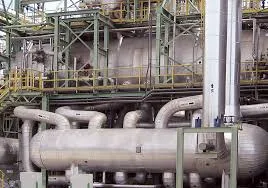Manufacturing Facilities for Oil Fired Steam Boilers and Their Efficiency Solutions
The Role of Oil-Fired Steam Boilers in Industrial Applications
In modern industrial settings, energy efficiency and reliability are paramount. Oil-fired steam boilers play a crucial role in achieving these objectives, offering a versatile solution for various manufacturing processes and generating steam for heating, power generation, and other applications. This article delves into the importance of oil-fired steam boilers, their working principles, advantages, and considerations when selecting a boiler for a factory.
Understanding Oil-Fired Steam Boilers
Oil-fired steam boilers are designed to produce steam by burning oil as fuel. The main components of these boilers include a burner, combustion chamber, heat exchanger, and control system. When oil is ignited in the combustion chamber, it generates heat, which is transferred to water within the heat exchanger, producing steam. The steam produced can be harnessed for heating processes, driving turbines, or even for sterilization in various manufacturing operations.
Efficiency and Versatility
One of the primary advantages of oil-fired steam boilers is their efficiency. They can achieve a high level of thermal efficiency, often exceeding 90% when operated correctly. This means a significant amount of energy from the fuel is converted into useful steam, minimizing energy waste and operating costs.
Furthermore, oil-fired boilers are versatile. They can be used across various industries, including food processing, textiles, pharmaceuticals, and chemical manufacturing. The ability to generate high-pressure steam makes them suitable for applications such as distillation, pasteurization, and other processes requiring precise temperature and pressure control.
Advantages of Oil-Fired Steam Boilers
1. Rapid Response to Demand Oil-fired boilers can quickly adjust to changes in steam demand, making them ideal for factories with fluctuating production requirements. Their ability to start up and reach operating temperature swiftly ensures uninterrupted operations.
2. High Energy Density Oil has a higher energy density compared to other fuels, enabling oil-fired boilers to produce more energy with less fuel. This is particularly beneficial in locations where space for fuel storage is limited.
oil fired steam boiler factory

3. Lower Emissions Modern oil-fired boilers are equipped with advanced combustion technologies that reduce emissions of harmful pollutants, such as nitrogen oxides (NOx) and sulfur oxides (SOx). This adherence to stringent environmental regulations is crucial for industries looking to minimize their ecological footprint.
4. Reliability Oil is a reliable fuel source, and oil-fired steam boilers are known for their robust construction and reliable performance. In regions where natural gas supply can be inconsistent, oil-fired boilers provide an alternative that ensures continuous operations.
Considerations for Selection
When selecting an oil-fired steam boiler for a factory, several factors should be considered
1. Capacity Requirements It is essential to accurately assess the steam demand of the plant. The boiler should be appropriately sized to ensure it can meet the maximum demand without excessive cycling, which can lead to inefficiencies.
2. Operational Costs While considering the initial investment, operational costs, including fuel prices, maintenance, and potential upgrades, should also be evaluated. Efficient operation and maintenance can significantly impact the total cost of ownership.
3. Fuel Quality The quality of the oil used in the boiler can affect performance and emissions. Using high-quality fuel reduces residues and increases efficiency, while lower-quality fuel can lead to increased maintenance needs and operational issues.
4. Regulatory Compliance Ensure that the boiler complies with local and national regulations regarding emissions and safety standards. Choosing a boiler that adheres to these regulations will mitigate risks and potential fines.
Conclusion
Oil-fired steam boilers remain a vital component in numerous industrial applications. Their efficiency, reliability, and versatility make them an attractive option for manufacturers looking to optimize their operations. By understanding the benefits and carefully considering the factors involved in selecting a boiler, factories can harness the power of oil-fired steam technology to maximize productivity and minimize costs. As industries continue to evolve toward sustainable practices, the future of oil-fired steam boilers will likely incorporate advanced technologies to further enhance their efficiency and reduce their environmental impact.
-
Top Electric Steam Boiler Manufacturers - High Efficiency SolutionsNewsJul.30,2025
-
Top Electric Steam Boiler Manufacturers – Efficient Industrial SolutionsNewsJul.29,2025
-
Top Electric Steam Boiler Manufacturers | Reliable Industrial SolutionsNewsJul.29,2025
-
OEM Steam Boiler Solutions for Custom Needs | High Efficiency & VersatilityNewsJul.29,2025
-
High-Efficiency Thermal Oil Boiler for Industrial Heating SolutionsNewsJul.29,2025
-
Top Electric Steam Boiler Manufacturers for Industrial EfficiencyNewsJul.28,2025

